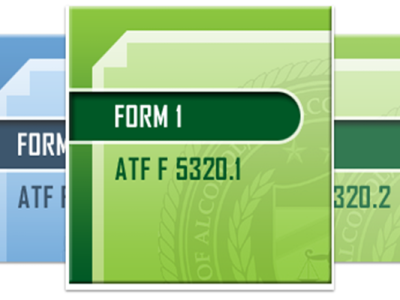The Bureau of Alcohol, Tobacco, Firearms, and Explosives (ATF) oversees the processing of National Firearms Act (NFA) tax stamps, which are required for the manufacture or transfer of regulated items such as suppressors, short-barreled rifles (SBRs), and machine guns.
These tax stamps ensure compliance with federal regulations and require applicants to submit detailed forms, undergo background checks, and pay a $200 tax stamp fee before approval.
The processing times for these tax stamps can vary significantly based on the type of application, the method of submission, and the applicant’s legal entity (individual, trust, or corporation). Factors like submission accuracy and workload at the ATF also contribute to variations in approval timelines.
ATF Form 1: Application to Make and Register a Firearm
- -eFile Submission: As of December 1, 2024, electronically filed Form 1 applications have an average processing time of 34 days.
- -Paper Submission: Paper submissions for Form 1 average 156 days for approval.
ATF Form 4: Application for Tax Paid Transfer and Registration of Firearm
- – eForm 4 Trust: Electronic Form 4 submissions for trusts have an average processing time of 52 days.
- – eForm 4 Individual: For individuals, the average processing time is approximately 28 days.
- – Paper Form 4: Paper submissions for Form 4 have longer processing times, averaging 154 days.
ATF Form 3: Application for Tax-Exempt Transfer of Firearm and Registration to Special Occupational Taxpayer (SOT)
- – eFile Submission: Electronic Form 3 submissions are processed in about 2 days.
- – Paper Submission: Paper Form 3 submissions take longer, averaging 12 days.
Factors Influencing Processing Times
Several factors can influence these processing times:
- -Submission Method: Electronic submissions are generally processed more quickly than paper forms due to streamlined data entry and reduced manual handling.
- -Application Accuracy: Incomplete or incorrect applications can lead to delays, as the ATF may require additional information or corrections.
- -Background Checks: Delays in background checks can extend processing times, particularly for individual applicants.
- -Volume of Applications: High volumes of submissions can impact processing times, although recent improvements have aimed to mitigate these delays.
Recent Improvements
The ATF has made significant strides in reducing NFA processing times, particularly through the implementation of the eForms system. This electronic submission platform has streamlined the application process, resulting in faster approvals. For instance, some eForm 4 submissions have been approved in as little as one day.
Recommendations for Applicants
To facilitate a smoother application process:
- -Utilize eForms: Whenever possible, submit applications electronically to benefit from reduced processing times.
- -Ensure Accuracy: Double-check all information and include required documentation to prevent delays caused by errors or omissions.
- -Stay Informed: Regularly check the ATF’s official website for updates on processing times and any procedural changes.
While NFA tax stamp processing times can vary, the adoption of electronic submissions has led to significant reductions in wait times, making the process more efficient for applicants. Applicants are encouraged to utilize the eForms system, verify all required documentation, and ensure their applications are complete and accurate to expedite the approval process and avoid unnecessary delays. Staying informed about current ATF guidelines and processing trends can also help ensure a smoother experience.


